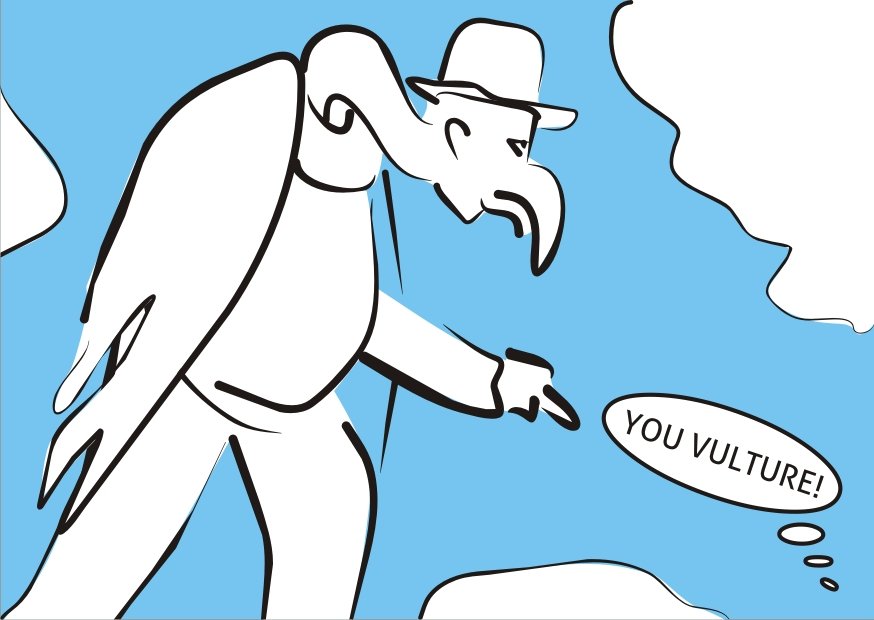
 Summary: SUEPO (EPO union) and the Central Staff Committee are not happy about fake "social dialogues" being presented as participation by staff in decision-making; in practice, EPO management besieges the staff in illegal ways and merely pretends there's consensus and understanding
Summary: SUEPO (EPO union) and the Central Staff Committee are not happy about fake "social dialogues" being presented as participation by staff in decision-making; in practice, EPO management besieges the staff in illegal ways and merely pretends there's consensus and understanding
THE autocrats of the EPO keep misusing words like "social" and "democracy" (or both in conjunction). They've been doing this for more than half a decade, so why stop now? English isn't their first language, but that's hardly an excuse. The words in French (Campinos was born in France; it's his mother's tongue) are almost the same.
"English isn't their first language, but that's hardly an excuse.To Benoît Battistelli, for instance, "social democracy" meant neither "social" nor "democracy" (as per dictionary definitions). SUEPO and the Central Staff Committee repeatedly complained about misuse of these words and under António Campinos the exact same is happening. Back in April the Central Staff Committee wrote the following about so-called "dialogue" with staff representation:
Munich, 17.04.2020 sc20067cp – 0.2.1/4.6
Social Dialogue Agenda 2020 – Only ticking boxes?
Dear colleagues,
The President regularly updates us with intranet publications, the most recent of which is the one on the Social Dialogue Agenda 2020 – Priorities for 2020. It has the air of a factual report but stands in stark contrast to our idea of what a social agenda should cover with which priorities.
(Use of) terminology
In the contact of the social partners, the terms dialogue, agenda and priorities would benefit from common definition. The lack thereof is a major impediment.
The President’s
interpretationThe Staff Committees’ interpretation
dialogue
Pushing decisions, and sometimes information
Exchanging information and points of view, joined-up thinking to influencing decisions
agenda
To be unilaterally set
To be agreed
priority
What looks best in reports
What is best for staff
Dialogue does take place, but we feel that the occasions are created for statistical purposes. The President pushes a defined line which does not follow a problem/solution approach. It is bound to fail, but succeeds in frustrating staff representatives to an extent that they chuck in the towel. But it looks good when the President reports to the AC that the administration had more than a hundred meetings with staff representatives.
Agendas, especially when they call themselves social, need to be agreed. When we managed to get some few points added and claimed health as a top priority we almost had a sense of achievement. Silly us.
Priority-wise, the President and his merry (wo)men and staff representatives live in parallel universes. Never the twain shall meet.
Let us look at the two example topics – Health and the situation of the staff recruited after 2009
Somewhere towards the end of the President’s publication, hidden under Ongoing social dialogue, references are made to statutory consultation in the COHSEC, purporting that “matters such as health” are “always a priority regardless of the agenda items for any given year”.
To give you an insight into statutory consultation we will use a The Hague example. The air quality in the new Main building appears to have aggravated existing respiratory problems and triggered new ones. This was brought to the LOHSEC’s attention. Measurements were promised, the results of which we have never seen. The problems persist, making colleagues working in New Main vulnerable to pulmonary infections, which is a real issue at times of COVID-19. We are not observing remedial action. Instead, now the heating is also failing to provide adequate working conditions.
We see no initiative from the Office to meaningfully tackle the lack of motivating career progression for the generation presenting the future of the Office.
So, based on the experience gained with social dialogue under Mr Campinos’ presidency we have to conclude:
- The respective lists with the President’s priorities and the CSC priorities may have some promising overlap on the topic titles, but content and understanding are miles apart.
- A process analogous to the joint agenda building to mutually agree on the problems to be solved and how to solve them is sadly missing.
- We would appreciate if the interaction between President and the Staff Committees would no longer be called Social Dialogue.
- When the President refers to something as a priority, staff may safely conclude that it is – at least not entirely – shared by staff representatives.
So, we flag issues – but to no avail
The Coronavirus task force is a closed society. Its members are not known, the information it works from is not shared, the reasons for any decisions taken are not known and staff input is not sought. We had claimed membership to that group, to be able to influence management’s decisions. Instead now two nominees have the privilege of being informed by delegated members of the task force. Are you being listened at?
Looking at senior management’s decisions, it appears that they are oblivious of the reality that our colleagues live every day – and the striking difference between the priorities of the CSC and the President are yet another indicator in that same direction.
But, hey, there’s hope!
Social dialogue is now “a specific SP2023 programme run by the Chief of Staff in the President's Office“. Fear not, all the right boxes will be ticked to make it look good for the Council.
Albeit by now absolutely disillusioned as regards any effect we can have as staff representatives without staff rising, we will continue to bring the real priorities of staff to the table, even if the President repeatedly keeps wiping them off.
Meanwhile, define your priority: Stay healthy and look after yourselves and your loved ones.
The Central Staff Committee